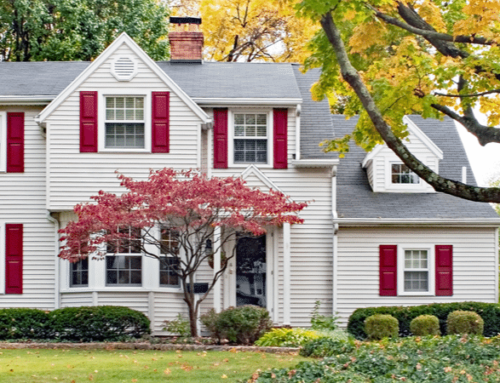Q: I purchased my home four years ago and used a 1031 exchange to buy it. I have now sold my home.
While reading the newspaper I found out that I have needed to have kept the home at least five years to avoid paying taxes on the gain.
I tried getting the buyers to release me from my contract, but they wouldn’t. I tried to get my buyers to allow me to delay the closing, but they wouldn’t. Before listing my home for sale, I talked to my accountant about it and he didn’t say anything about the new law.
I would have delayed the sale if I had known about the five year waiting period. I want to be able to get the $25,.000 exemption on the sale of my home. What should I do?
A: First of all, we have to take a step back. There are two pressing issues raised by your question. The first one has to do with 1031 exchanges relating to investment property and the other with excluding up to $250,000 in gains from the sale of a primary residence.
Typically, an owner would use a 1031 exchange to defer gains and other tax payments upon the sale of an investment property. To defer these taxes, the seller of an investment property buys a replacement property of equal or higher value.
The seller has to satisfy timing requirements and other rules, but if those are met, he or she is able to sell an existing investment property and then buy a new property without having to pay the IRS any taxes. One of these requirements is that the new property purchased must be used for investment purposes.
In some cases, some real estate practitioners have stated that the safety time period that the new property must be owned and used for investment purposes must be two years.
Some people have taken the process a step further and have sold an investment property – a property that has gone up in value substantially – and instead of buying a replacement investment property, they buy a new home. They use this home as their own residence.
The purpose of the 1031 exchange is to facilitate a tax-free exchange for investment property owners. It does not permit homeowners to benefit from the deferral of the payment of taxes on appreciated home value.
Instead, homeowners get their own tax break. When they sell, they benefit by being able to exclude up to $250,000 (or if they are married, an exclusion of $500,000) in profits when they sell their primary residence and they have lived in that residence for at least two out of the prior five years.
The rule is rather simple and gives homeowners a great break on homes that have appreciated in value.
While the rules for 1031 exchanges have not changed, the IRS took notice of the fact that people were selling commercial properties, buying a home, using the home as their residence, then taking the exclusion and not paying any taxes.
The IRS did not outlaw what some people were doing – it just made it harder to comply with the existing 1031 exchange rules.
For example, if the owner of a property had initially owned the property for investment purposes for at least two years, and then converted the property to his or her personal use for another two years to get the benefit of the primary residence exclusion on the taxes, that’s a total of four years of ownership. But the period of time which is called the “safety” period has been described as five years.
When you sell the home and later file your tax return, the IRS may disallow the exemption and you may have to pay taxes on any gain you have on the sale of the home.
If the IRS deems that you have capital gains (from the sale of what was once investment property), you may have to pay tax of up to 15 percent, depending on your income. You may also have to pay taxes on any depreciation you previously took on the commercial property you owned. Your accountant should be able to help you out in this regard.
It is regrettable that your accountant did not advise you of current tax law and how it would apply to your situation. Your accountant probably was not focusing on your situation or perhaps he has a different view as to how he is going to treat the sale of your home. Your accountant might treat your sale aggressively and perhaps believes that you will be able to exclude the gains due to the fact that you have owned the property and lived in it for the last four years.
You need to sit down with your accountant and go over these issues fully in order to understand what he has in mind for you. If you don’t feel that he has your best interests in mind or that his information isn’t quite up to date, you should look for another accountant to help you out.
Published: Nov 28, 2005






Leave A Comment